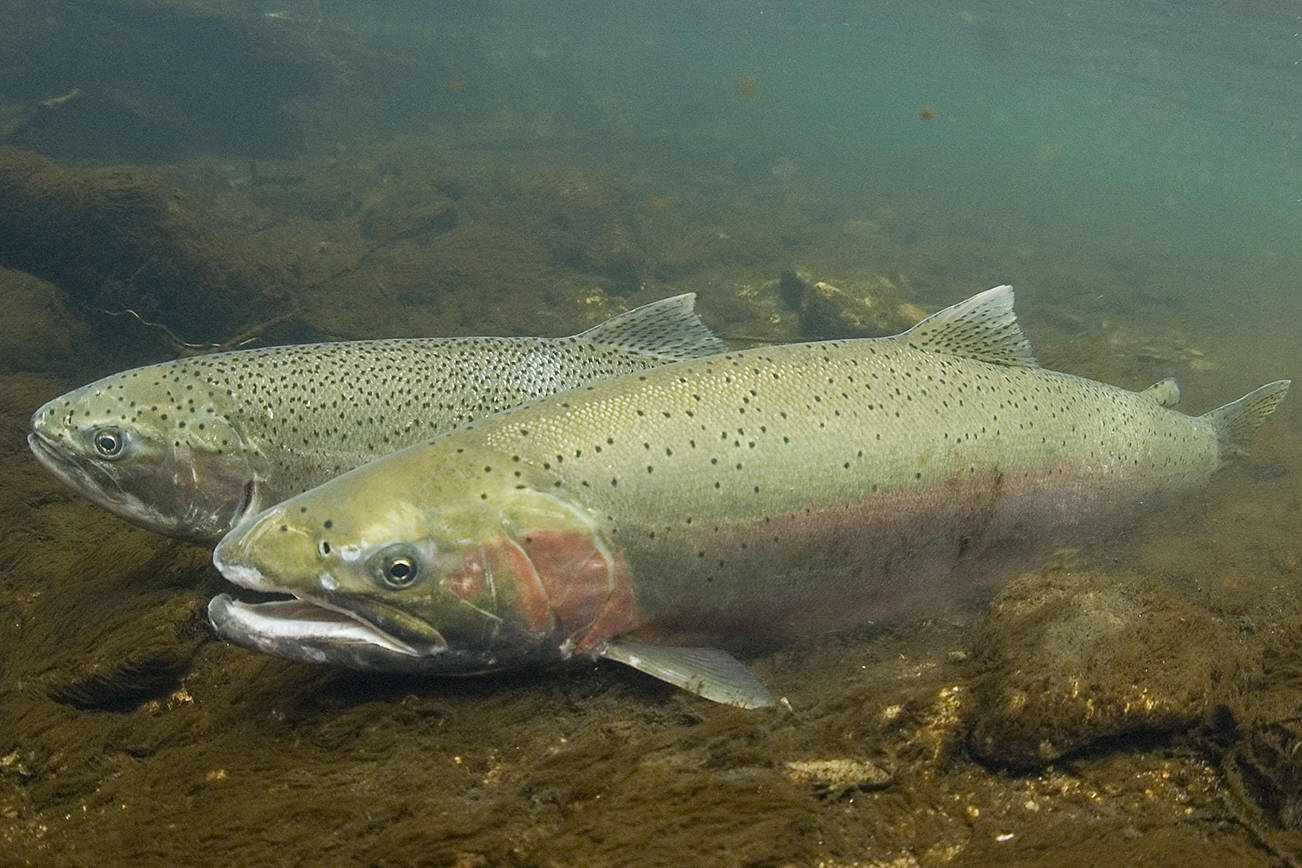Submitted by Washington Department of Ecology
Cooke Aquaculture is going through the multi-agency permitting process to change the type of fish it raises in four Puget Sound net pens from non-native Atlantic salmon to native steelhead.
After receiving approval to switch species from the Washington Department of Fish and Wildlife, the company sought Ecology’s approval for updated water quality permits.
Ecology has drafted revised permits and is making them available for public review and comment. An online hearing Oct. 14 will give the public an opportunity to learn about and comment on the draft revised permits. All documents and hearing information can be found at ecology.wa.gov/NetPenPermit, and comments can be submitted online through Oct. 26, 2020.
While Ecology determined that switching species would not change potential impacts on water quality, the agency is strengthening regulations in the draft permits to ensure water quality is protected. Additional requirements include:
• Clarifying that any fish reared in Cooke’s net pens are prohibited from release.
• Adding requirements and details on how to notify state agencies of events that could potentially lead to fish escape.
• Increasing monitoring and reporting of potential fish escape during stocking and harvesting.
• Adding monthly reporting for fish feed consumption.
• Adding details on how nets must be maintained.
• Adding a requirement to study new technologies and propose alternatives that reduce waste from feed.
Following this comment period, Ecology will review public feedback and determine if further modifications are needed to the permits to protect water quality.
Non-native fish farming is banned
In 2018, the Legislature approved a ban on non-native net pen fish farming; the ban goes into effect in 2022. Since steelhead are native fish, they are not subject to the new law.
Leases expire 2022
Cooke Aquaculture’s aquatic lands leases with the state Department of Natural Resources expire in 2022. For Cooke Aquaculture to continue fish farming with native fish beyond 2022, DNR would need to renew the aquatic lands leases.
Water quality permits expire in 2024
Ecology’s revised water quality permits are consistent with the Legislature’s and DNR’s timelines. If Cooke Aquaculture’s aquatic lands leases are not renewed in 2022, Ecology’s water quality permits give the company two years to clean up and remove the net pens.
Ecology last updated the net pen permits in July 2019 to include increased protections for water quality based on lessons learned from the 2017 net pen collapse at the Cooke Cypress Island site. To learn more about the water quality permits updated in 2019, read the July 11, 2019, news release.
State authority
• Department of Fish and Wildlife regulates ecological impacts of marine aquaculture to prevent disease and harmful effects to wild stocks.
• Department of Ecology regulates marine net-pen aquaculture to protect water quality through the National Pollutant Discharge Elimination System.
• Department of Natural Resources manages the aquatic lands leases for net pens.



